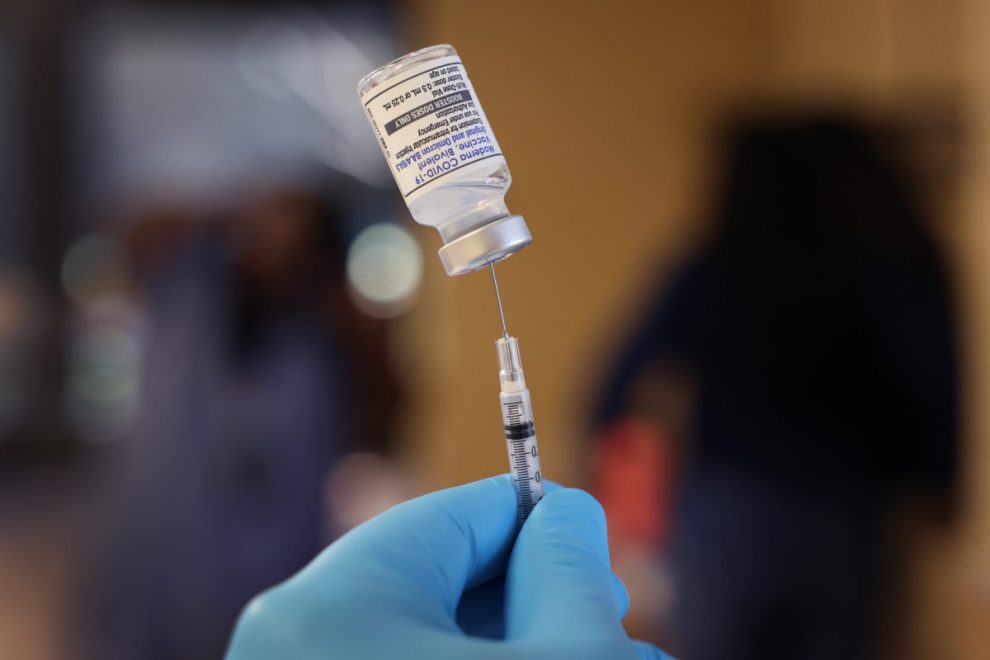Oxford University scientists’ AI diagnostic test accurately identifies known respiratory viruses in minutes
February 6th, 2023 – Oxford, United Kingdom – Nicolas Shiaelis and Dr Nicole Robb, Oxford University scientists and co-founders of health tech company Pictura Bio, have developed a world-first diagnostic, test powered by artificial intelligence, that can identify known respiratory viruses such as influenza and COVID-19 within five minutes from just one nasal or throat swab.
Current tests are either lab based and time consuming or fast and less accurate. They are also limited, for instance, a lateral flow test only tests for one infection. This means illnesses are spread as infected people wait for results, or because they are unaware they are infected. These findings, published in peer-reviewed, scientific journal ACS Nano, demonstrate how machine learning can significantly improve the efficiency, accuracy and time taken to not only identify different types of viruses, but also differentiate between strains. This could help better control the spread of respiratory infections and alleviate pressure on the NHS and healthcare staff whilst reducing medical waste.
Shiaelis and Robb collaborated with the John Radcliffe Hospital to evaluate a new method that uses AI software to identify viruses. The ground-breaking testing technology combines molecular labelling, computer vision and machine learning to create a universal diagnostic imaging platform that looks directly at a patient sample and can identify which pathogen is present in a matter of seconds. Much like facial recognition software, but for germs.
Preliminary research demonstrated that this test could identify the COVID-19 virus in patient samples. But to develop this further, they wanted to determine if the test could be used to diagnose multiple respiratory infections.
In the study, researchers began by labelling viruses in over 200 clinical samples from John Radcliffe Hospital. Images of labelled samples were captured and processed by custom machine-learning software that is trained to recognise specific viruses by analysing their fluorescence labels, which show up differently for every virus because their surface size, shape and chemistry vary. The results show the technology is able to rapidly identify different types and strains of respiratory viruses, including flu and COVID-19, within five minutes and with >97% accuracy.
The scientists formed Pictura Bio to further develop this technology and are now looking for further investment to accelerate development and get it to the front line of healthcare.
Dr Nicole Robb, scientist and co-founder of Pictura Bio, comments: “Cases of respiratory infections in winter 2022/23 have hit record-breaking highs, increasing the number of people seeking medical help. This combined with the COVID-19 backlog, staff shortages, tighter budgets and an ageing population puts the NHS and its workforce under immense and unsustainable pressure.
“Pictura Bio’s simplified method of diagnostic testing is quicker and more cost-effective, accurate and future proof than any other tests currently available. If we want to detect a new virus, all we need to do is retrain the software to recognise it, rather than develop a whole new test. Our findings demonstrate the potential for this method to revolutionise viral diagnostics and our ability to control the spread of respiratory illnesses.”
Lead-author of the publication, co-founder and DPhil post-grad researcher at the University of Oxford, Nicolas Shiaelis, added: “It is inevitable that other COVID-like viruses will emerge. This reinforces the need for more advanced diagnostic testing technology so that we can reduce the impact of new viruses on public health and the NHS.”
The technology is now licensed by Pictura Bio which aims to turn the method into a diagnostic test by creating a dedicated imager and single-use cartridge for use in point-of-care testing, with limited input from the user. The team will also expand the number of viruses that the models are trained on and will eventually start looking at other pathogens, such as bacteria and fungi, in respiratory samples, blood and urine.
About Pictura Bio
Pictura Bio is a health-tech company that has developed the world’s first one-minute pathogen recognition platform. The software, like facial recognition for pathogens, is a universal testing platform, powered by AI, to provide accurate, digital imaging-based identification of infectious disease. The innovation encompasses two patented innovations – PIC-ID and IRIS. PIC-ID coats the lipid membrane whilst IRIS, a deep learning neural network, simultaneously analyses and classifies pathogens. It is a fundamentally different way of identifying ALL infectious agents and the company’s vision is to have a Lab in a Box for one minute testing on desktops in hospitals, GP surgeries and pharmacies around the world.
Pictura Bio’s solutions drive faster, simpler and more cost-effective testing than resource-consuming molecular diagnostics, changing how we treat disease. The technology will enable healthcare decision makers to revolutionise health care as we know it – bolstering the fight against antimicrobial resistance, reducing medical waste and limiting virus exposure.
PIC-ID and IRIS – the technology
The Pictura Bio team is focusing on packaging its PIC-ID technology into a simple desktop ‘lab in a box’, named IRIS (Instant Recognition Identification System) around the size of a domestic microwave, comprising a single-purpose high-powered fluorescent microscope and image capture and processing technology. This technology has reached proof of concept and is protected by patents and the team is now in the process of building the technology to scale this product for wider availability & adoption in the medical community. Today, PIC-ID is trained to spot enveloped viruses from respiratory samples, but the future holds boundless potential for how pathogens in samples are recognised.
The Neural Network is the database that IRIS checks against to identify a pathogen. This process ensures that as new tests and pathogens are learned by the network, it can be continuously rolled via a software update, instead of requiring new panels and the infrastructure to go with it.
For further information visit https://pictura.bio/
PR Contacts:
Transatlantic Entertainment
picturabio@transatlanticent.com
+44 (0)7968 949746






























